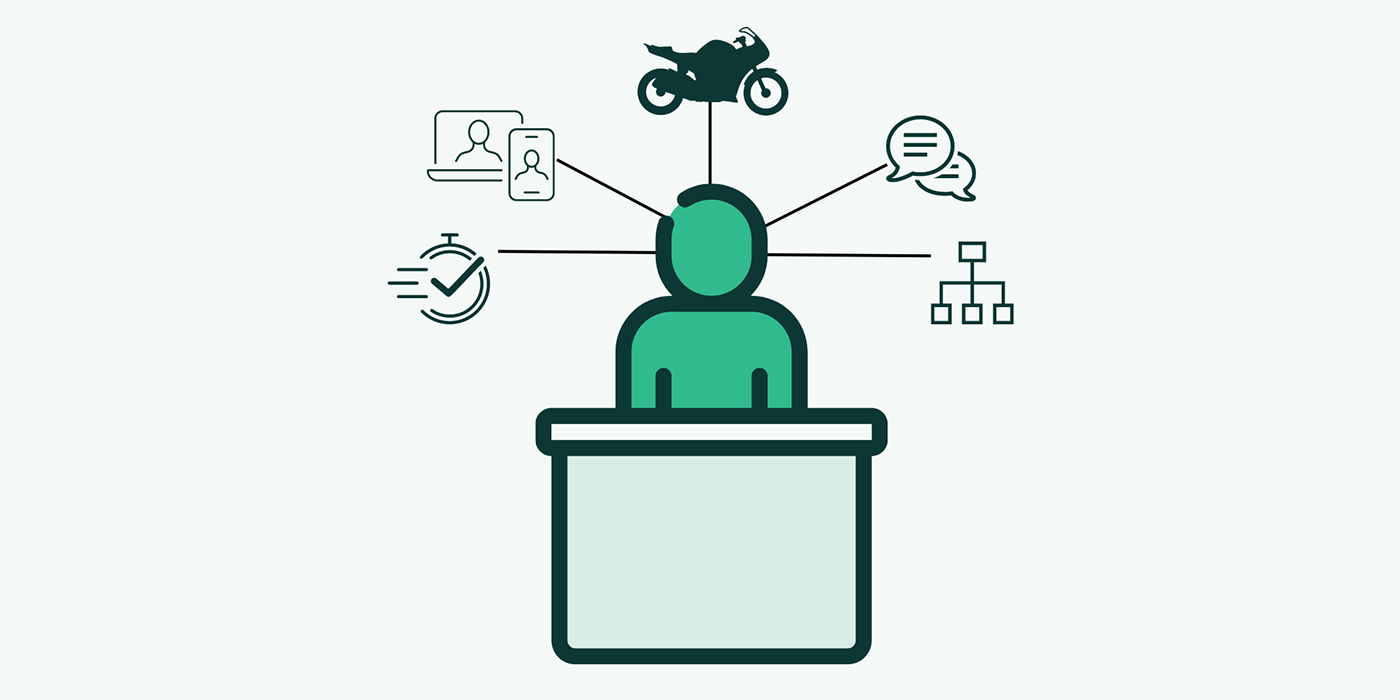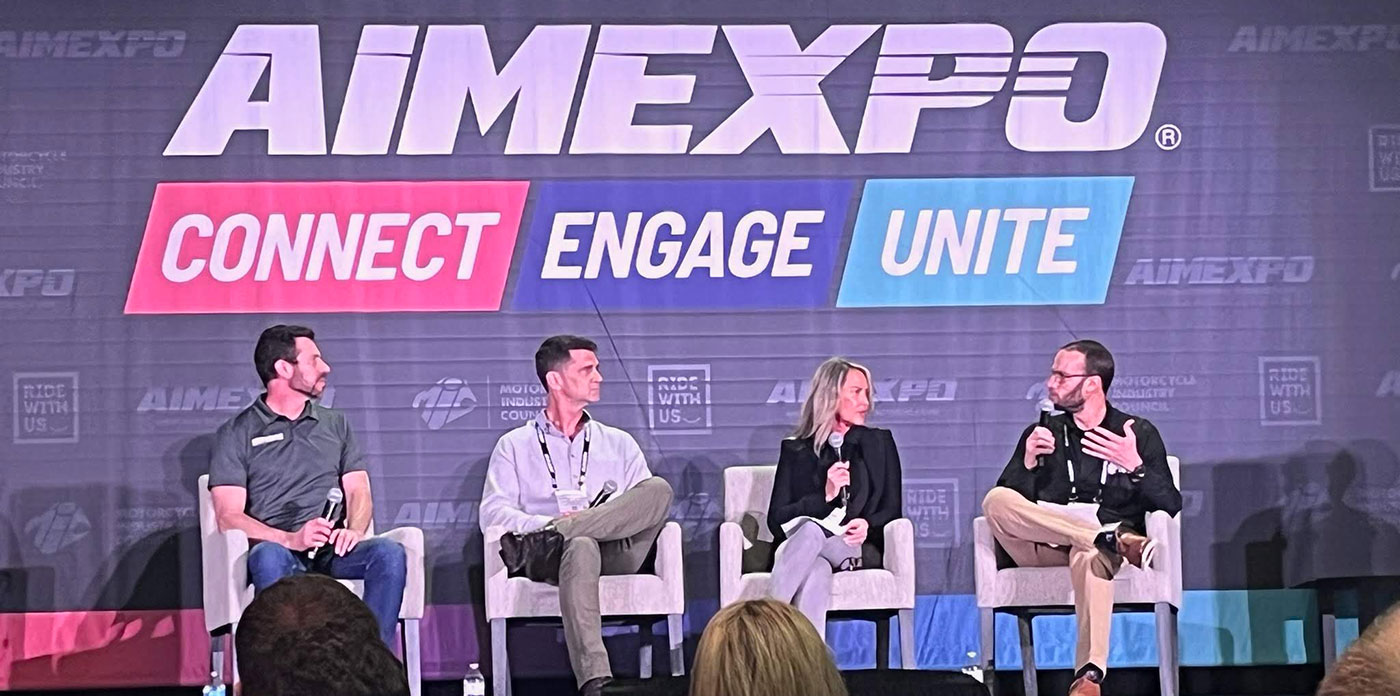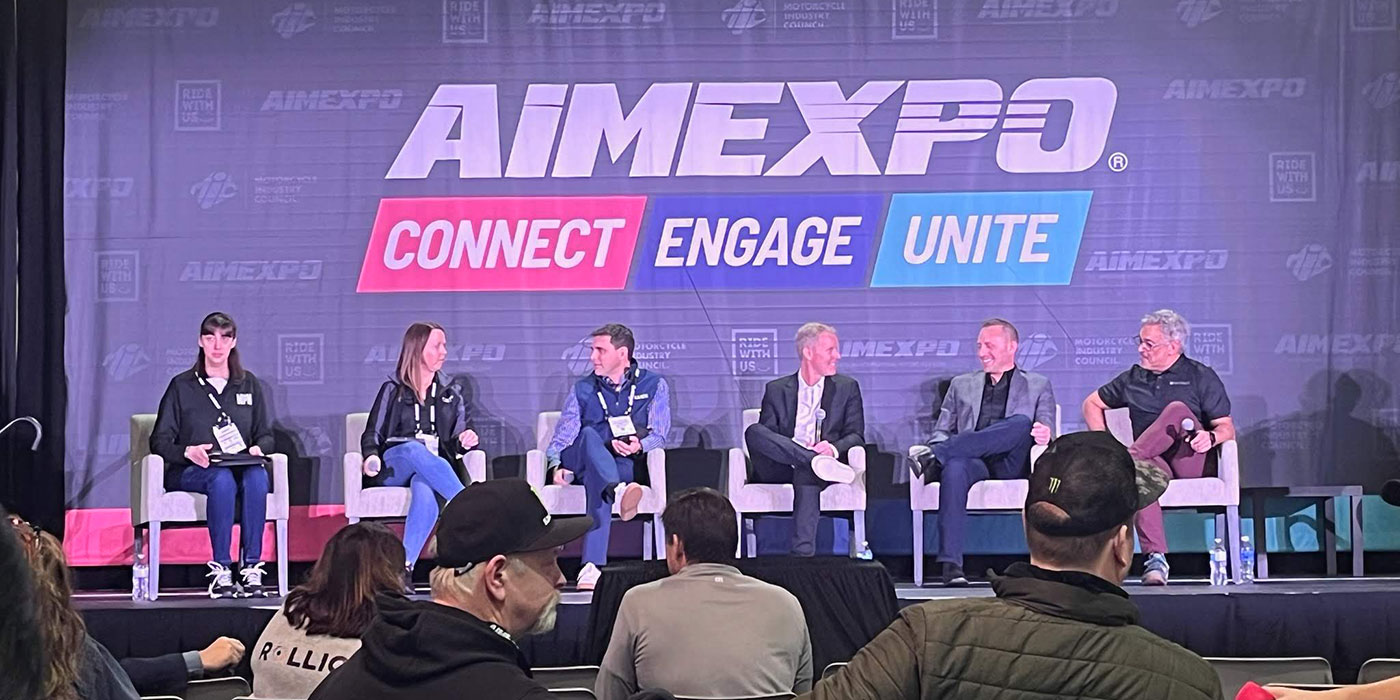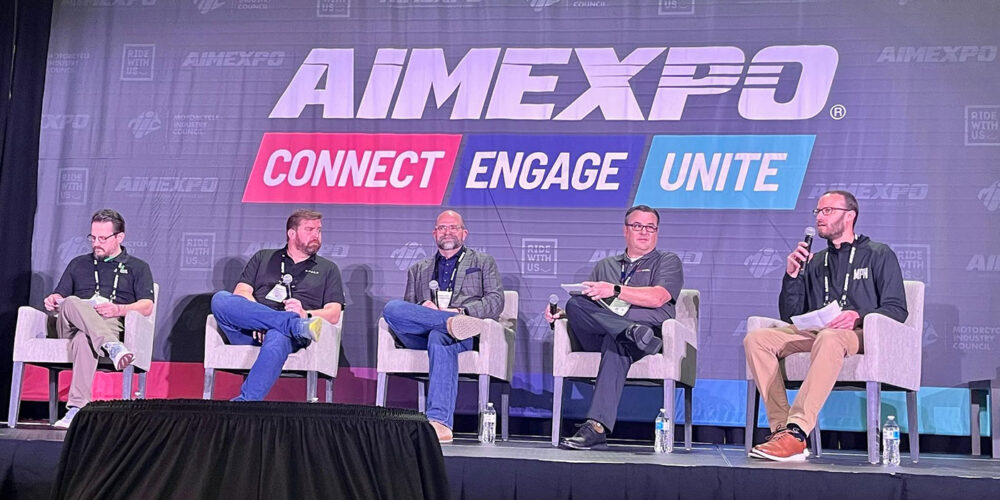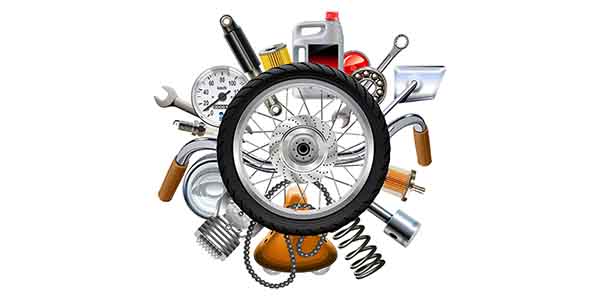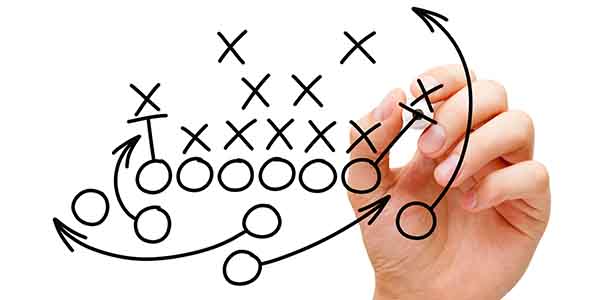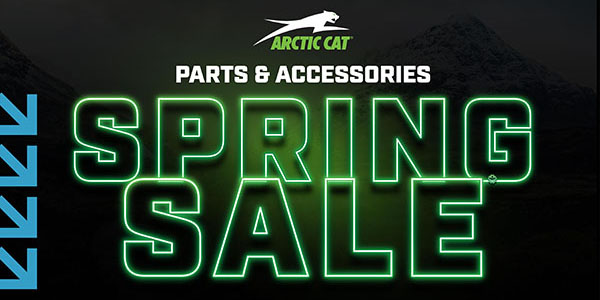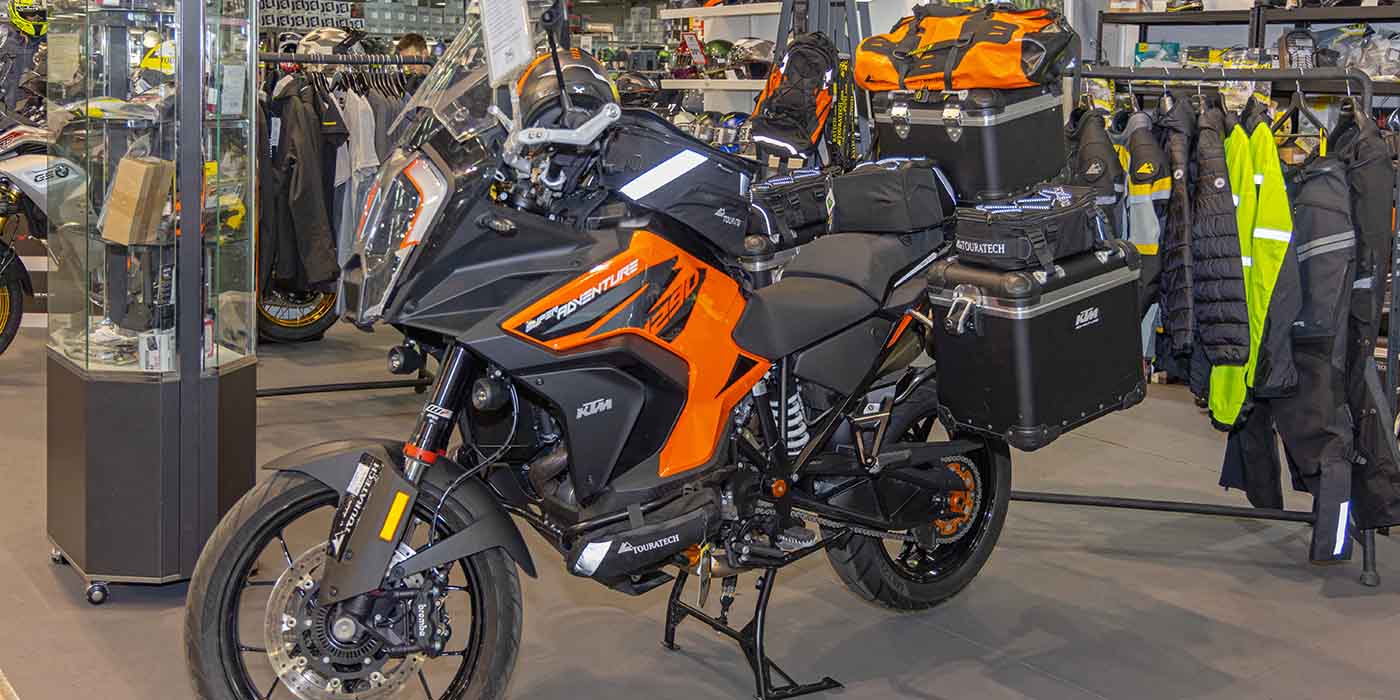You’ve seen them. They come in and usually go straight for the helmets. They start looking for one particular helmet or brand of helmet and start trying on hats like there’s a reward for it.
“Do you have this in a medium?” they ask.
“Sure,” you reply. “Going to go riding today?”
“No,” they shoot back. “I just want to see if a medium helmet fits.”
And that’s when you realize they have no intention of buying from you. They’re simply using your stock to check fit, finish and quality so they can go online and order it from Discount Darryl. This practice has been going on for as long as Internet retailers have been discounting.
Somewhere between when the penny-pinching-advice givers started telling savers to go to motorcycle dealerships on Saturday to eat for free, and the recent spate of forum posts and bloggers telling each other to hurry down and steal a deal while some family dealership is closing their doors after 50 years in business, I got angry, infuriated, enraged — it’s difficult to describe how violated a dealer feels when this happens.
Keith Richards said it best, when some new band (whom, by the way, no one now remembers) was sampling old Stones songs and Richards sued them. All the young music journalists asked incredulously, why he was suing this fresh new talent. Didn’t it feel good that he was being paid homage by a new generation? “Let me get this straight,” Richards replied, “I’m supposed to be happy somebody is ripping me off?”
Let’s say an online shoplifter (my new term to describe this phenomenon) comes into your brick-and-mortar store and uses your stock and your people to help them make their decision to make an online purchase.
Your store had to do the following in order to have the product available to allow them to do so:
• Order the inventory
• Pay for the inventory
• Pay for the shipping
• Accept the package, list into inventory
• Clean and display
Your store had to do the following in order to have a professional person capable to help them:
• Place an ad or search
• Plan, execute and conduct interviews
• Hire
• Provide compensation and benefits
• Provide training
Let’s say we’re talking about a $200 retail helmet with a wholesale cost of $100 and an apparel associate who makes a straight $10 per hour. Let’s make a few other assumptions, so we can start to make this transgression tangible:
• Stocking tasks: 15 minutes ($2.50 of associates time)
• Time spent with customer: 15 minutes
• Lost opportunity dollars for inventory: 8 percent (if you just had this $100 invested in an average returning mutual fund)
Ok, so we’re now talking $5 worth of an associate’s time, and we’ll call the immediate lost opportunity of capital $8. So now we’re talking $13 of negative cost. But I would argue it’s much more than that — you’d have to replace those dollars from your store’s net profit. If you’re dealership’s net profit is 10 percent, you have to earn $130 of full-margin retail revenue to make up that difference.
That was one time with one associate, what if it happens repeatedly, say, five times in a month? Now, we’re talking $650. But wait, there’s more. You have to now look at the implications over a full year, that’s a lot like $7,800. In the words of Senator Everett Dirksen “… pretty soon, you’re talking real money.”
You might argue with my math, but prosperous brick-and-mortar motorcycle dealerships (even those with an online presence) won’t flourish if this goes unchecked for long.
To thwart online shoplifting, you have to personally engage with every customer. This will be the only chance for you to prove why buying through you makes sense for them. Sometimes, these shoppers try to sneak in and not garner too much attention. I believe they do this because either consciously or subconsciously, they know what they are doing is morally and ethically wrong.
Once you engage a customer shopping in your dealership and start a dialogue, you should investigate where they’ve done their research. The moment they say anything intelligent about the product, you should say something like, “Hey! Sounds like you know your stuff! May I ask where have you researched the product?” Often, they will say they did their research on the Web.
Now you have a real opportunity to communicate why doing business with you makes sense. Here are just some of the advantages of doing business with brick-and-mortar stores:
• They will receive personal, real-time assistance, now and in the future
• They can physically see and touch the product
• They can take product home today
• They won’t spend money on non-value-added expenses like shipping
• They know and trust the store
• You can teach them something about the product or the sport
• Returns can be handled quickly and easily
You may come up with more, but this should get you started. In addition, a well-told Internet shopping horror story can help you seal an in-store sale. In our new McGraw-Hill book, Accelerate the Sale, we talk about the power of storytelling. If you know of or have personal experience with an online purchase that went sideways, craft it into a 15- or 30-second story that makes your point in a clear and compelling manner.
Will you ever be able to totally stop online shoplifters? No. Just like you’ll never be able to stop people from actually shoplifting, littering or cutting you off in traffic. But if you take the steps above, you can minimize the impact and feel better knowing you’ve taken action and didn’t play the role of the victim.
Ok, last bit. My favorite story for this dilemma is a dealer who was so fed up with online shoppers using his store and inventory for helmet sizing that he took drastic action: He changed the sizes so that anyone who used his stuff to help them buy online ordered incorrectly.
An award-winning author, top-rated trainer and founder of Peak Dealership Performance, Mark Rodgers holds a master’s degree in adult education and the National Speakers Association Certified Speaking Professional designation — only 500 people in the world have this coveted recognition. Contact [email protected] to improve your performance.

